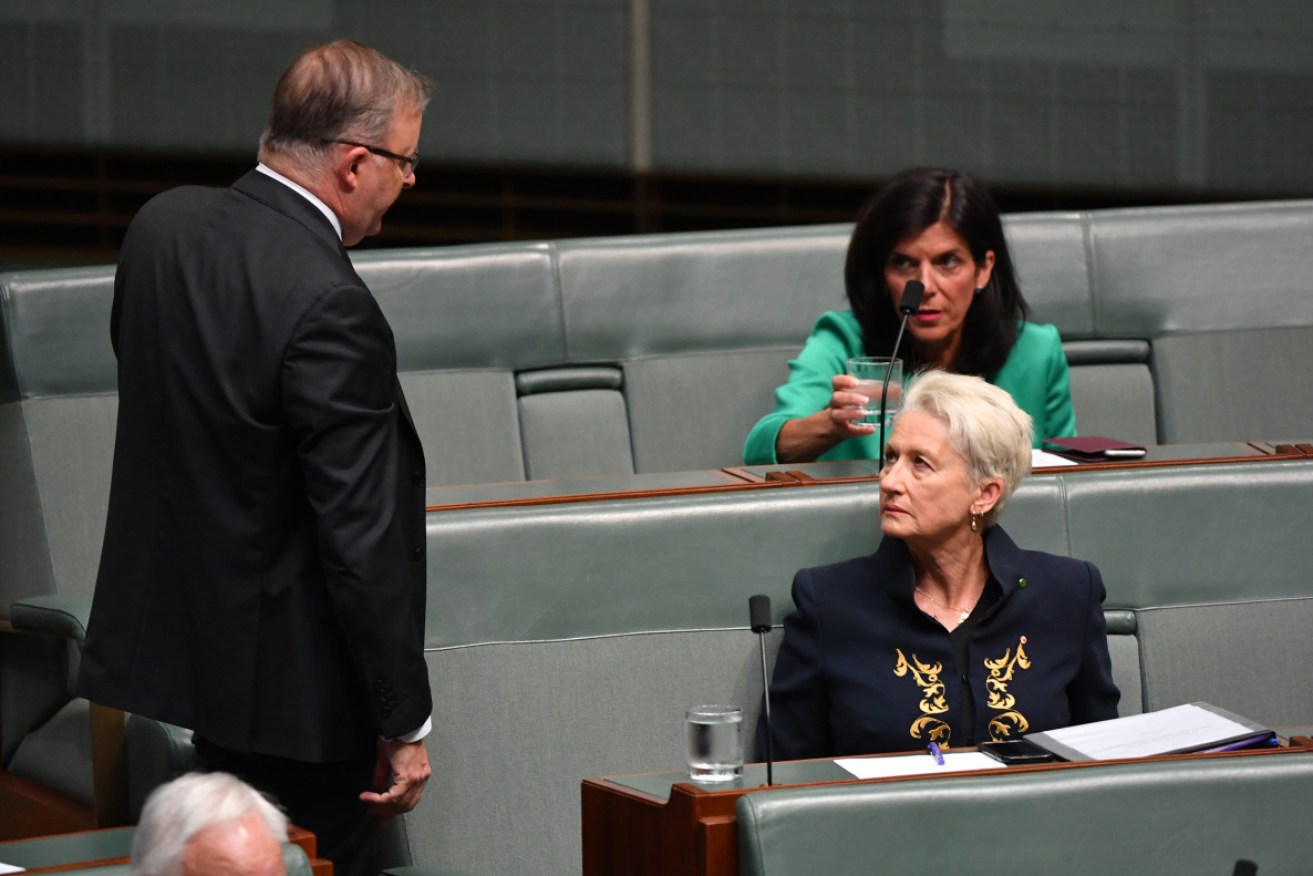Kerryn Phelps’ risky game almost brought the government to its knees


"It’s possible Dr Phelps didn’t realise she was being used by Labor for this broader political agenda when she agreed to collaborate." Photo: AAP
The new federal member for Wentworth, Kerryn Phelps, made some progress this week in her campaign to remove refugees from Manus Island and Nauru. However, the small win involved a big risk for the independent MP.
Dr Phelps made it clear during her run for Wentworth that, if elected, she would push for an end to mandatory detention and the immediate removal of children and families from Nauru.
She put those words into action on Monday, introducing the Urgent Medical Treatment bill, which would make it possible for asylum seekers to be brought to Australia on the advice of two medical doctors.
So far so good. Except that most legislation proposed by anyone other than the government rarely gets debated, let alone passed. Even with the government’s diminished numbers, there weren’t enough supportive MPs (namely 76, half of all MPs plus one) in the House of Representatives to make it possible for Dr Phelps’ bill to be debated.
That was until Plan B was hatched in the Senate, where the numbers were more favourable for the pro-asylum seeker forces. Dr Phelps teamed up with Labor, the Greens and some Senate crossbenchers to make additions to an existing government bill, thereby making it possible to bring asylum seekers to Australia under the same conditions.
The beauty of this approach was that, when it was sent to the House of Representatives for approval, fewer votes would be needed to pass the amended government bill (half of the MPs in the chamber at the time, plus one) than was needed to bring on debate of the Phelps’ bill. It would be a highly unconventional, but still legitimate, way of forcing the government to ‘bring them home’.
This is where the risk came in for Dr Phelps. She would have been focused on doing whatever it took to get the remaining children and families off Nauru. However, Labor had a very different objective in mind; the opposition was focused on pressing the government to even higher levels of chaos, and possibly even forcing it over the brink altogether.
If the amended bill had been passed in the House of Representatives, despite being opposed by the government, this would be the first time a government had lost such a vote in almost 90 years. It would have been a huge deal, essentially signalling that the Coalition had lost control of the Parliament.
Although the loss would not have automatically resulted in an election being called, it would have put an end to what is left of the Morrison government’s authority, and increased political pressure to an almost unbearable level.
Labor has already begun to chant ‘Call the election now’ – a defeat on the floor of the Parliament over a totemic issue such as mandatory detention would make it almost impossible for Prime Minister Scott Morrison not to do so.
Given the stakes were so high, it’s no wonder the PM was almost apoplectic about the move when it occurred on Thursday. Or that the government used every parliamentary tactic at its disposal to prevent the amended bill from getting back to the House of Representatives for a final vote.
While it may be convenient for both the government and the opposition to claim this tussle was over asylum seekers, it was much more than that. It was a brawl over control of the Parliament and the fate of the Morrison government.
It’s possible Dr Phelps didn’t realise she was being used by Labor for this broader political agenda when she agreed to collaborate on the Plan B Senate plan. Or perhaps she did – the independent MP hasn’t ruled out the possibility of joining a no-confidence motion against the government, if one were to be brought forward.
Yet Dr Phelps also stressed, just before the Wentworth poll, that her intention was not to bring the government down before its term was complete. The voters of Wentworth may be expecting her to keep that pledge.
The fate of the amended government bill will be decided when Parliament resumes in February 2019. That is, unless the PM can find an alternative way to meet Dr Phelps’ demands.
Meanwhile, the independent MP would do well to remember why the people of Wentworth elected her: because she’s not a creature of either major party, nor is she beholden to their political imperatives.








